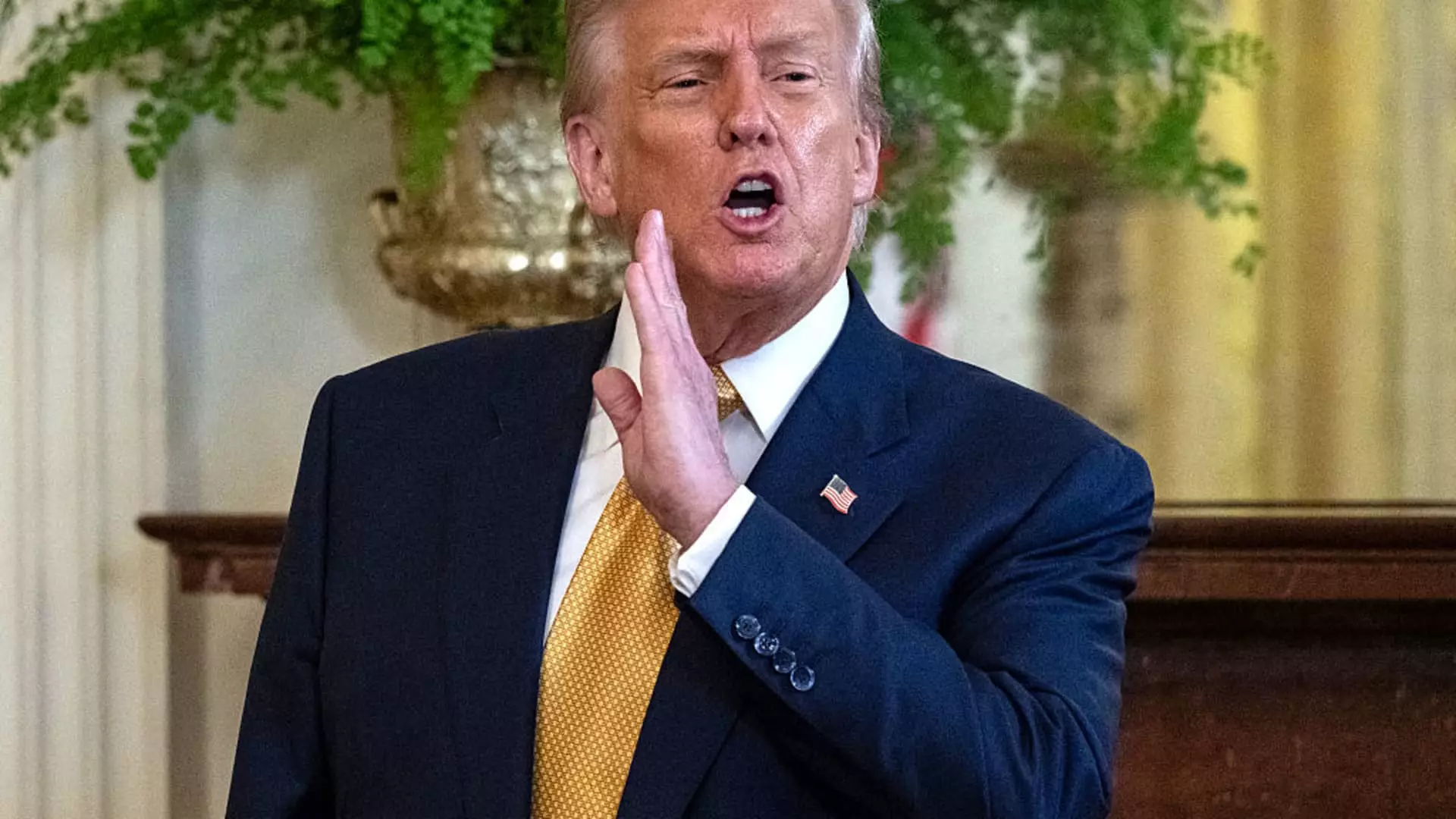Amidst an era of intensifying global economic competition, the United States under President Trump’s leadership has unmistakably pivoted toward a more aggressive stance in trade negotiations. The recent focus on the EU, following the U.S.-Japan agreement, signals a pattern that raises critical questions about America’s long-term strategy. Is this shift a pragmatic move to secure better terms for domestic industries, or does it exemplify a reckless abandonment of multilateral cooperation? From a centrist liberal perspective, it seems clear that such unilateral maneuvers threaten the delicate balance of global trade relations and risk undermining the stability that international agreements previously sought to uphold.
The Trump administration’s approach appears driven by short-term nationalist interests, emphasizing tariffs and retaliatory measures rather than sustainable negotiation frameworks. While protecting domestic industries is a legitimate concern, the timing and tone of these policies suggest a prioritization of political gains over economic stability. By abruptly threatening tariffs and pressing for expedited agreements, the administration risks sparking escalating retaliation routines that could destabilize global markets. Moreover, this approach undermines the rules-based international order that has historically prioritized dialogue and compromise over zero-sum confrontations.
The EU’s Dilemma and Its Place in a Turbulent Global Arena
Europe finds itself caught in a precarious position—trying to navigate between protecting its economic interests and maintaining a cooperative relationship with a United States seemingly diverging from multilateral norms. The EU’s vocal desire for negotiated solutions underscores its recognition that confrontation serves no one in the long run. Yet, the bloc’s internal divisions and the pressure to defend key sectors such as automotive and technology complicate the picture.
It’s telling that the EU’s core representatives — from Ursula von der Leyen to Antonio Costa — are engaged in extensive diplomatic visits throughout Asia. Their focus on China and Japan underscores a broader strategy: to diversify trade partnerships and reduce dependence on an unpredictable U.S. partner. For a union that values cohesion and consensus, these diplomatic moves serve as a subtle yet powerful assertion that Europe remains committed to a multilevel global approach, even as the U.S. pursues a more isolated and protectionist path.
Furthermore, the proposed auto tariffs, a vital sector for EU exports, symbolize the risks of the current confrontational climate. The EU’s willingness to enter sectoral exemptions hints at a nuanced strategy—aimed at preserving key industries while avoiding outright trade wars. Yet, it also underlines the fragile nature of the current negotiations: a small miscalculation or unilateral move could trigger retaliations that damage European economic interests.
Market Reactions and the Illusions of Optimism
Financial markets, as usual, react unpredictably to political signals. The brief surge in European stocks reflecting optimism over the Japan deal might be overly optimistic, reflecting hope rather than certainty. Gains in auto stocks may be short-lived if negotiations with the U.S. falter or if tariffs are imposed, disrupting supply chains and raising costs across industries. The markets’ volatility reveals skepticism about the long-term efficacy of these deals, especially when driven by political rhetoric rather than comprehensive, enforceable agreements.
It’s tempting to see the U.S.-Japan agreement as a blueprint for future deals: a smaller, manageable trade pact that could inspire confidence among global stakeholders. However, this view neglects the complexities involved in broader negotiations—particularly with the EU and China. The fact that economic powerhouses like Europe remain cautious and intent on safeguarding their interests underscores a broader truth: global trade is increasingly fragmented and unpredictable. Plowing ahead with protectionist policies disregards the lessons of history—that cooperation and mutual benefit foster the most durable and prosperous relationships.
Beyond the Surface: The Broader Implications
Ultimately, this turbulent landscape reveals more than just the specifics of tariffs or trade agreements. It exposes a fundamental tension between national sovereignty and global interconnectedness—a tension that the Trump administration’s policies seem to exacerbate rather than resolve. While protecting sovereignty is vital, isolating economic policies carry the risk of undermining the ability to adapt and thrive in an interconnected world.
From a center-left liberal standpoint, it’s evident that sustainable progress depends on constructive engagement, transparency, and respect for international norms. The current trajectory hints at a retreat from these principles. If Europe and the U.S. continue down this path, the consequences could be far-reaching: increased economic volatility, diplomatic alienation, and the erosion of the rules that have managed international trade for decades.
In this context, it becomes imperative to reconsider how global leadership can be shared more equitably. Rather than succumbing to protectionist impulses, more constructive efforts should focus on building inclusive trade frameworks that prioritize fairness, innovation, and long-term cooperation. Only then can we hope to steer the global economy through this turbulent period without sacrificing the very foundations that have fostered growth and stability for generations.


Leave a Reply